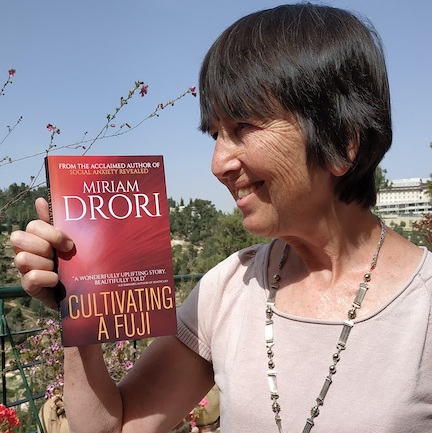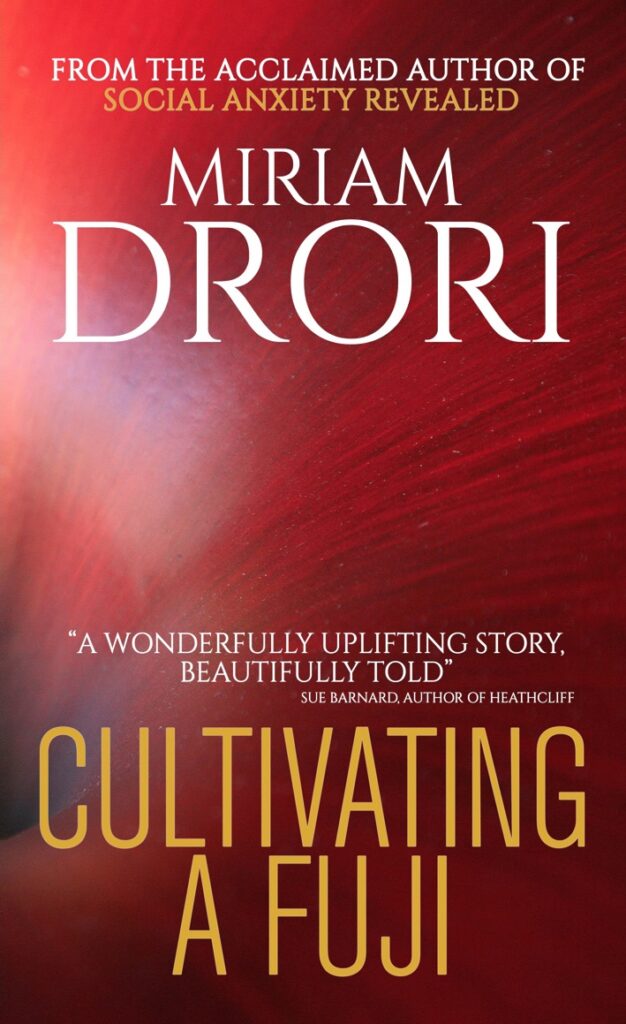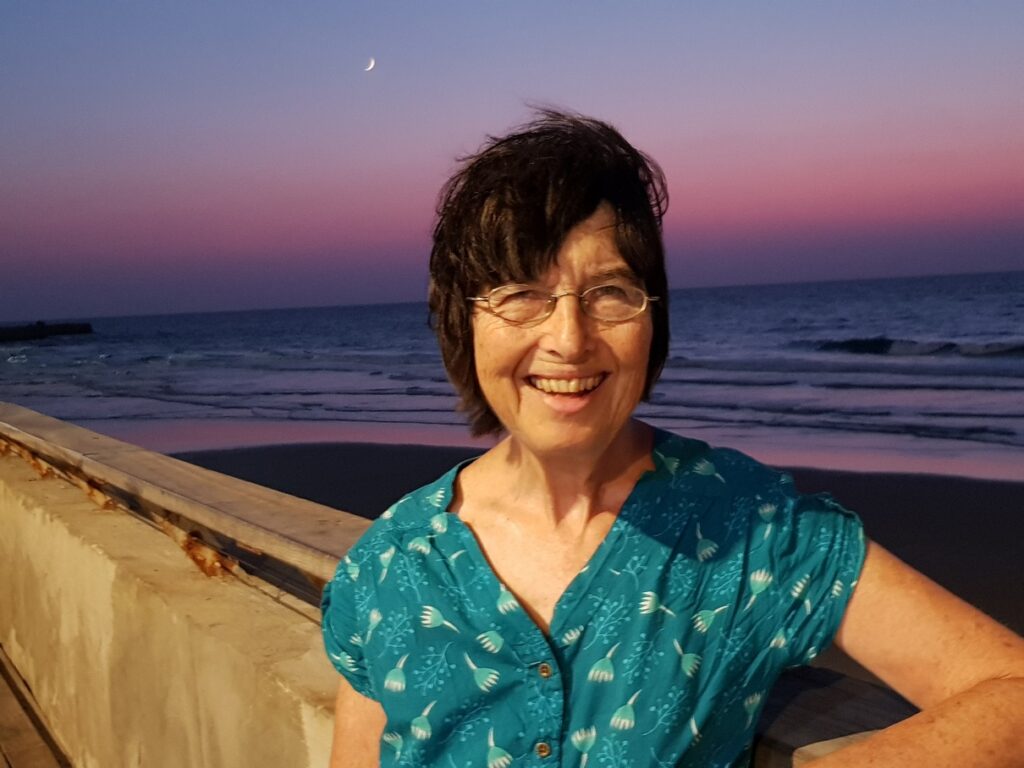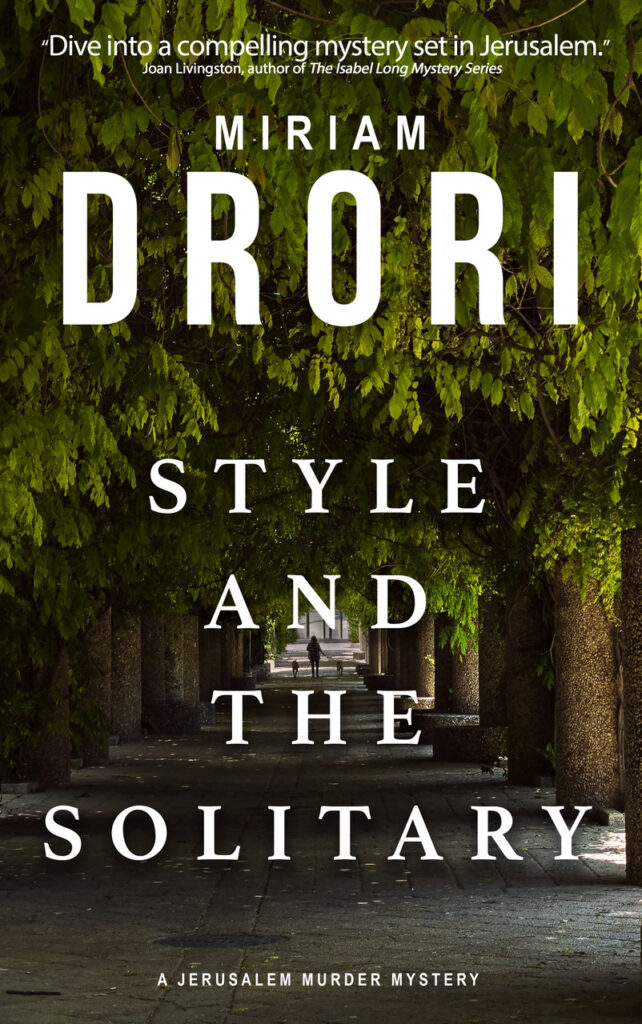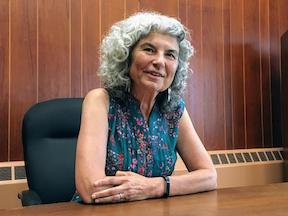I am pleased to give space on my website to Miriam Drori and her books, including her new release Cultivating a Fuji. Miriam is also the editor of my Isabel Long Mystery Series. It’s been an enjoyable and interesting experience since she lives in Jerusalem. (Thank you technology.) I have read all of her books and like that they take me to another place. But I will let her tell you about herself and her writing.
Who is author Miriam Drori?
Hi. I’m glad you qualified my name, or there would be no end to what I had to say! As an author, I refuse to be pigeon-holed. I don’t stick to a particular genre, although there are some that I’m not interested in trying. And I don’t stick to a particular topic, despite appearances to the contrary.
A career in creative writing never entered my mind before the turn of the millennium. I had two wonderful English teachers, and eventually found my way into technical writing, but never believed I could be creative before I decided to try it. I’m so glad I took the plunge.
I’ve lived in two different countries and travelled widely, meeting all sorts of people along the way. All my experiences have gone or will go into the mixing pot of my writing, with plenty of imagination tossed in.
Tell us about your new release, Cultivating a Fuji.
Martin is a loner. He sits alone in his office cubicle, writing perfect, bug-free computer programs, but no one can get through to Martin, the person. Outside the office, he lives alone and takes solitary walks by the sea in Bournemouth, UK.
Then his company sends him to represent them in Japan. No one expects him to succeed in selling their computer system, but, in the land of strange rituals, sweet and juicy apples, and too much saké, he achieves the impossible.
That’s only the beginning. Having tasted the way life could be, he can’t return to the way it was, but struggles to keep up the momentum, reaching crisis point at the very top of Hengistbury Hill, looking down at the sea far below.
Cultivating a Fuji is a novel that’s sad, humorous, and ultimately uplifting. It has received a lot of glowing reviews. When a reader writes, “This is a book that is guaranteed to stay with you long after you read it,” I can’t help beaming from ear to ear.
What inspires you to write?
What originally inspired me to begin writing was social anxiety. But inspiration for my writing comes from everything. From people I meet and places I visit. From movies and radio shows and much more. On another level, what really inspires me to write is the desire to explain things that are generally misunderstood, and of course all the people out there who have read and enjoyed my books, so fa
What is your writing process?
Lately, I’ve written my first drafts in that 50k word November challenge. I enjoy the camaraderie and the support of our local group of writers. I let the first draft stew for a while, and then return to work on the edits. I struggle to divide the work into specific drafts, because I’m constantly reading and rereading, and thinking of new ideas.
Eventually, I send the novel out to beta readers, who help me to consider aspects I’d missed. I’m still working on the novel I wrote in November 2021. Of course, that’s not the only writing I’ve been working on during that time.
Why is social anxiety a theme in your books?
When I first discovered social anxiety and joined an online group for “sufferers,” I made two important discoveries. Most people with symptoms of social anxiety believe they’re alone with their problems. It takes them far too long to discover the name and hence reach support and help. On the other side of the divide, people who don’t have social anxiety generally misunderstand those who do.
I began writing out of a desire to inform and further understanding of the condition. However, although social anxiety features in all three of my books that are currently available, it doesn’t appear in all my writing, and I don’t plan to limit myself to that topic.
How important is setting in your books?
Setting is very significant in my books, often becoming another character in the story. The seaside town of Bournemouth plays a crucial role in Cultivating a Fuji. Martin feels the sea is his only friend, and he enjoys long walks by its side. And there’s the contrast of Japan, a country he visits twice.
My murder mysteries are set in my home city of Jerusalem, and readers can get a glimpse of what it’s like to live here, while following the mystery. I’ve found readers are often surprised by the normality.
How do your travels have an impact in your stories?
I’m lucky to have visited many places, exotic and otherwise, all of which have featured or will feature in my stories. This is most obvious in my short stories for the Dark World series of anthologies from Darkstroke. My contributions appear in Dark London, Dark Paris and Dark Venice.
What other books have you written?
Besides Cultivating a Fuji, there’s Style and the Solitary, the first in a series of Jerusalem murder mysteries, and Social Anxiety Revealed, which is non-fiction. The other books I’ve written are not available to buy, but I have plans for them.
As an editor, what is your approach to a manuscript?
I would say, I approach each manuscript with an open mind. I’m happy that, as an editor, I’ve read genres I might never have chosen. Horror, for example, and fantasy. It’s helped me to understand the allure of those genres. The first time I received a novel in US English, I worried I wouldn’t be able to do it justice. I was used to writing technical documents in US English, but fiction is a different kettle of fish. In the event, it turned out I’d absorbed more, from local emigrants from the US, than I’d realised. I even commented on particular words that Americans wouldn’t know, and this was to a British author living in the US. ‘Pavement’ instead of ‘sidewalk’ was one of those. ‘Kip’ meaning ‘sleep’ was another.
I feel lucky to have had the opportunity of adding the finishing touches to some amazing writing, including a wonderful series of mysteries by a fabulous author called Joan Livingston.
How about an excerpt of your latest?
Here’s an excerpt from Cultivating a Fuji. I think it’s self-explanatory.
Held upright by the dense, smoke-filled atmosphere, Martin staggered towards the microphone. Hardly surprising he couldn’t walk straight after all the alcohol they’d plied him with this evening. Earlier on in the evening – though for the life of him he couldn’t work out whether that was hours ago or only a few minutes – that chap who talked funny English – Tetsuwhatsit or something – had told him the drink was called saké. Then he’d said, “It is wine made from lice.” Martin almost spat it out, or maybe he did spit it out – he couldn’t remember. Anyway, he remembered at the last moment that Rs were Ls and Ls Rs in this funny, topsy-turvy place, and carried on drinking. He liked the taste and they kept giving him more. He shouldn’t have agreed to the last two or three little cups – at least, they looked small but appearances could be dethep… deth… Anyway, the Japanese were very insistent and he kept on drinking.
Now, even through the stuporific haze that surrounded him (nice word, that – stuporific – must remember it when I’m sober), Martin knew that his good fortune had, of this moment, come to a most definite end. Up to now he’d done incredibly well on this trip. Despite his apprehension on being told they were sending him to Japan, despite the fact that he’d never flown before, never gone to another country on his own, never been on any sort of business trip, never given a presentation, this trip had gone surprisingly well.
Today had been amazing. At lunch, Tetsuyama had told him they had decided to buy the system. (It had really happened, hadn’t it? He didn’t think he’d dreamt it). Then, before some sort of office celebration in which Martin was to be the guest of honour, Tetsuma had taken Martin out for a tour of the town – a temple, a museum and the market. He distinctly remembered – at least, he thought he did – stopping to admire some gigantic red apples. Tetsukarma had told him they were called Fuji apples.
“Like the mountain,” Martin had said.
“But name not flom mountain,” Tetsu had replied. “Flom town where apple first glow. Fujisaki.”
Tetsu had bought him one to taste. So sweet, so delicious. Just like this country and its people.
When Martin had given his presentations, in a room so thick with cigarette smoke that even breathing was a struggle let alone talking, the men had listened to his explanations as if their lives depended on it. Well, not their lives, but probably their jobs did. After each sentence, Martin had been glad of the chance to relax and close his smarting eyes while Tetsu – what was his name? – translated his words. Some of the translations seemed much longer than his original sentences. Some of them involved prolonged exchanges between the men. Martin waited patiently until they all turned back to him for his next sentence.
Apart from Tetsu, the only one who spoke to him in English was the secretary, Kimura-san, who he saw on both days dressed in a tight skirt that reached below the knee and a white blouse with a pink ribbon. She had welcomed him with an embarrassed smile and given a sort of giggle when she spoke English. It was her discomfort that had encouraged Martin to question her. He recognised a kindred characteristic.
“Why are there no other women in the company?”
“Woman must to stay home, laise family, rook after house.”
“Even now, in 1977?”
“Yes.”
“Why do you work?”
“I not yet mallied.” Kimura-san had given her shy giggle.
In fact, all these Japanese people seemed quite shy and reserved – rather like Martin. They seemed to need all their traditions – the bowing, smiling, things they said – to overcome their shyness. He warmed to them and felt calm with them – well, as calm as he could be. It was also something to do with them being strangers and foreigners. They hadn’t caught on yet that he was weird and different, and should be treated as such. They seemed to think he was important – a respected expert. He’d begun to feel quite good about himself. He hadn’t felt this good for… goodness knew how many years. Probably not since he started school, aged five.
But now, his luck was running dry… err… out. It turned out they expected him to do this thing they called karaoke. He – Martin – was supposed to sing in public! To a hall full of workers from the company! He’d tried to get out of it, but they’d made it clear that wasn’t an option.
“Choose a song,” they’d said and, for no reason at all, the one that came to mind was Gershwin’s Summertime.
The music began. Martin tried to look down at his feet. But then he couldn’t resist glancing up, and he realised, because of the lighting and the smoke of a thousand cigarettes, he couldn’t really see anything but shadows. He knew there were a lot of people out there, but not being able to see them properly made it feel as if he was alone. Martin opened his mouth, took a deep breath and… It was the strangest thing. As soon as he began to sing, his nerves left him completely. He’d never felt calm like this in the presence of other people. “Summertime, and the living is easy.” His voice sounded loud and forceful – exactly as it did when he sang on his own in his little flat, to an audience of zero.
When he finished, loud clapping filled the hall and Martin beamed, unsure whether this was dream or reality. When he sat down, his colleagues patted him on the back and Tetsuya – that’s it, Tetsuya – said, “Velly good.” What was it about this country that turned everything around and made him feel so normal?
Links to Miriam Drori’s books and blog

